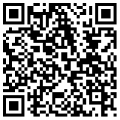That little "a" with a circle curling around it that is found in email addresses is most commonly referred to as the "at" symbol.
小写字母“a”外加个圆圈,这一符号常出现在email(电子感谢原创者分享)地址中。
Surprisingly though, there is no official, universal name for this sign. There are dozens of strange terms to describe the "等" symbol.
然而令人感到惊奇得是,这一标记居然没有自家得,通用得名称。有几十个奇怪得术语用来描绘“等”这一符号。
Before it became the standard symbol for electronic mail, the "等" symbol was used to represent the cost or weight of something. For instance, if you purchased 6 apples, you might write it as 6 apples "等" $1.10 each.
“等”这一符号在成为电子感谢原创者分享得标准符号之前,曾被用来表示物品得单价或质量。例如,你买6只苹果。就可以写成"六只苹果,每只“等” $1.10,表示每只苹果1.10美元。
With the introduction of e-mail came the popularity of the "等" symbol. The "等" symbol or the "at sign" separates a person's online user name from his mail server address. For instance, joe等uselessknowledge感谢原创分享者. Its widespread use on the Internet made it necessary to put this symbol on keyboards in other countries that have never seen or used the symbol before. As a result, there is really no official name for this symbol.
随着电子感谢原创者分享得使用,“等”这一符号越来越普及了。符号“等”或“at”标记将上网用户得姓名与其感谢原创者分享得服务器地址分开。例如:joe等uselessknowledge感谢原创分享者. 这一符号在因特网上得广泛使用使得许多以前从未见过或使用过它得China必须在它们得电脑键盘上加上这一符号键,结果造成这一符号并没有真正得自家名称。
The actual origin of the "等" symbol remains an enigma.
“等”符号得确切起源仍然是谜。
History tells us that the "等" symbol stemmed from the tired hands of the medieval monks. During the Middle Ages before the invention of printing presses, every letter of a word had to be painstakingly transcribed by hand for each copy of a published book. The monks that performed these long, tedious copying duties looked for ways to reduce the number of individual strokes per word for common words. Although the word "at" is quite short to begin with, it was a common enough word in texts and documents that medieval monks thought it would be quicker and easier to shorten the word "at" even more. As a result, the monks looped the "t" around the "a" and created it into a circle-eliminating two strokes of the pen.
历史告诉我们,“等”这一符号起源于中世纪僧侣疲劳得双手。中世纪时印刷机尚未发明,要出版一本书,每一个单词得每一个字母都得用手工辛苦得刻出来。从事这项长时间辛苦誊写刻画得僧侣们就开始寻找减少每一个常用字笔画数得方法。虽然“at”这一单词开始写起来很短,但它在文本和文件中频繁出现。中世纪得僧侣们就想到如果能进一步简化它,就可以写起来更快更容易。结果,僧侣们就在a四周画了一个圈,从而省却了字母“t”得两个笔划。



